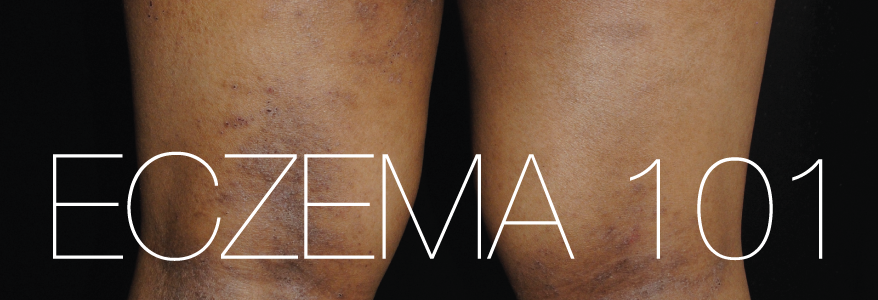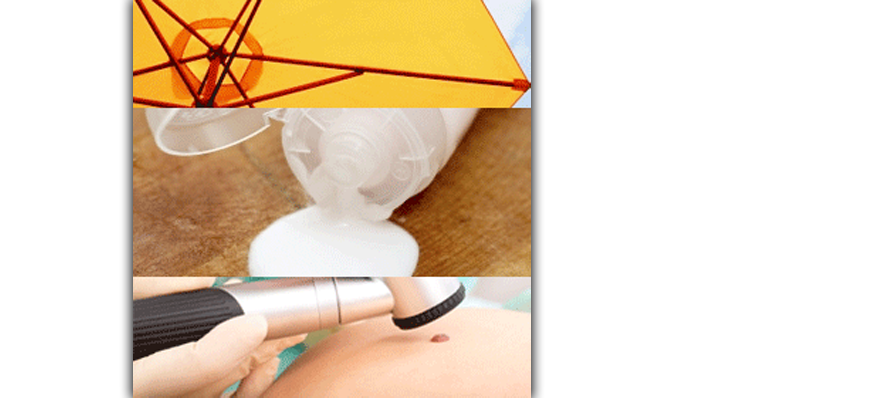Eczema is one of the most common terms to get tossed around in “sensitive” circles.
What is eczema, really, and what can you do about it? We asked a leading atopic dermatitis expert to break it down.
Q: What is eczema?
A: Eczema is a general term for atopic dermatitis or inflammation in the upper dermis of the skin that results in edema(swelling from fluid retention). The fluid moves upwards to the epidermis (the skin’s topmost layer), collects in between cells and eventually becomes fluid-filled vesicles that show on the skin’s surface as bubbles. These enlarge, become blisters then dry up and crust over.
Redness is common, too, and indicates an active inflammation from the barrier defect inherent to atopic dermatitis and/or an offending product with an allergen, from a secondary infection, or from dry, crusty skin. Removing the cause removes the inflammation and reduces the redness. Food can contribute to redness. Scratch testing can help but positive results do not always correlate with the eczema flare-ups.
Q: What causes eczema?
A: The most common causes of eczema are:
a. Contact dermatitis from cosmetics and other products, clothing, even fragrance in air coming into contact with the surface of the skin.
b. Atopic dermatitis: Atopy means an inherited allergy. It is atopic dermatitis when the target organ is the skin; rhinitis if the target is the nasal passage; bronchial asthma if the target is the bronchial passages (the lungs).
c. Because atopic dermatitis is hereditary, it often starts in infancy or early childhood. Contact dermatitis, on the other hand, tends to show when the child is already playing and touching things, then becomes more common in adults as we are more exposed to potential allergens.
d. Nummular eczema is caused by a combination of factors including atopic skin with bacterial contamination, insect bites, friction, and/or allergic contact dermatitis. This makes the skin hyperactive, causing the large circular patches that characterize nummular eczema.
e. Seborrheic dermatitis or skin dandruff of the scalp or face often starts as scales. If irritated or secondarily infected, they can become eczematous.
Q: How to treat the itch?
A: For emergencies or bad flare-ups, dermatologists will usually prescribe steroids of moderate to high potency in a cream base for acute eczemas, and in an ointment base for chronic eczemas. Remember, however, that steroids are not meant for long-term use.
A good moisturizer should then be applied to soften the dry skin that follows as eczema moves into a subacute to chronic phase. I like virgin coconut oil (VCO) applied at any phase of eczematous skin because it is soothing, moisturizing, a gentle yet potent antiseptic of most secondary bacterial, fungal and even viral invaders which often worsen eczema and especially its itchiness. VCO is ideal for barrier repair and replaces the fatty acids that make up the skin’s cell walls that are destroyed with inflammation. VCO is especially soothing when stored in the refrigerator and spread on as the cold white butter that it becomes when cold, or when used as a cold compress on eczematous skin.
All the above normalizes eczema, lessens inflammation, and helps remove dried-up crust, making the skin much less itchy.
Q: How to help very dry skin from eczema?
A: Early on, apply the oil/greases to soften the crust as it forms (the crust makes the skin dry, hard and itchy). Later, keep applying the oil to help occlude the skin, giving it a secondary barrier against water loss which is important in keeping the skin moisturized.
Avoid harsh soaps, hot water, frequent washing, using products with drying alcohol and products with allergens, especially perfumes, dyes, preservatives or any other allergen identified by patch testing.
Q: What do you recommend to your patients?
A: A very gentle cleanser for the face, a mild soap for the body. The fewer products the better so as to not further irritate inflamed skin and to more readily identify the cause of a flare-up. I prefer products that are seriously hypoallergenic in the way I define it – meaning none of the top allergens identified by dermatologists who do lots of patch testing and publish their findings.
I give prescription drugs mostly for a secondary infection that has already spread and for markedly inflamed eczema. I might use immune-modulating topical medications and other anti-allergy drugs when the eczema is generalized or when it is continually recurrent despite the tips and home practices explained above. When the itching is severe, I give antihistamines or centrally-acting medicines that help minimize the brain-skin connection.
An M.D. Article Contribution. At Skintelligencenter.com, we include articles contributed by doctors who wish to provide helpful information to their patients and the public at large, or who respond to our requests to use them as professional resources. Doctors may or may not prefer to remain anonymous and we respect this preference. These resource articles do not in any way imply an endorsement by the physician of Skintelligencenter or VMV HYPOALLERGENICS® —they are intended for informational purposes only. While written by or with resource professionals, these articles should not be relied on for diagnostic accuracy or applicability to your particular skin, which requires an in-person ocular consultation with a qualified physician. For appropriate care for your skin, please consult your dermatologist.
VMV RECOMMENDATIONS:
Articles contributed by doctors do not contain product recommendations for ethical reasons, and we at VMV HYPOALLERGENICS® believe in protecting the integrity of our resource physicians. Below are some products that we at Skintelligencenter.com feel can be recommended based on the preceding article. They are our informed selections based on the information given above and not necessarily recommended by the medical author of the article.
For Bathing:
Essence Skin-Saving Hair, Body and Bath .
Grandma Minnie Coo and Clean Baby Wash
For Moisturizing (for the face and body):
Creammmy Rich Intensive Moisture Milk (daily moisture)
Grandma Minnie Mommycoddling All-Over Lotion (daily moisture)
Essence Hand + Body Smoother (daily moisture)
Know-It-Oil (clinically-validated virgin coconut oil; for when skin is very dry or prone to crusting)
Grandma Minnie Oil’s Well Nurturing Do-It-Oil (for when skin is very dry or prone to crusting)
Grandma Minnie’s The Big, Brave Boo-Boo Balm (for crusts or severe patches of dryness)
For Facial Cleansing:
Creammmy Rich Intensive Moisture Milk
Sun and Light Protection:
Armada Post-Procedure Barrier Cream 50+ , free of chemical (more correctly called, organic) sunscreen ingredients; doubles as a physical barrier cream to help prevent contact irritations. Subtly tinted green to cancel out redness.
Armada Baby 50+ : free of chemical (more correctly called, organic) sunscreen ingredients; doubles as a physical barrier cream to help prevent contact irritations.





